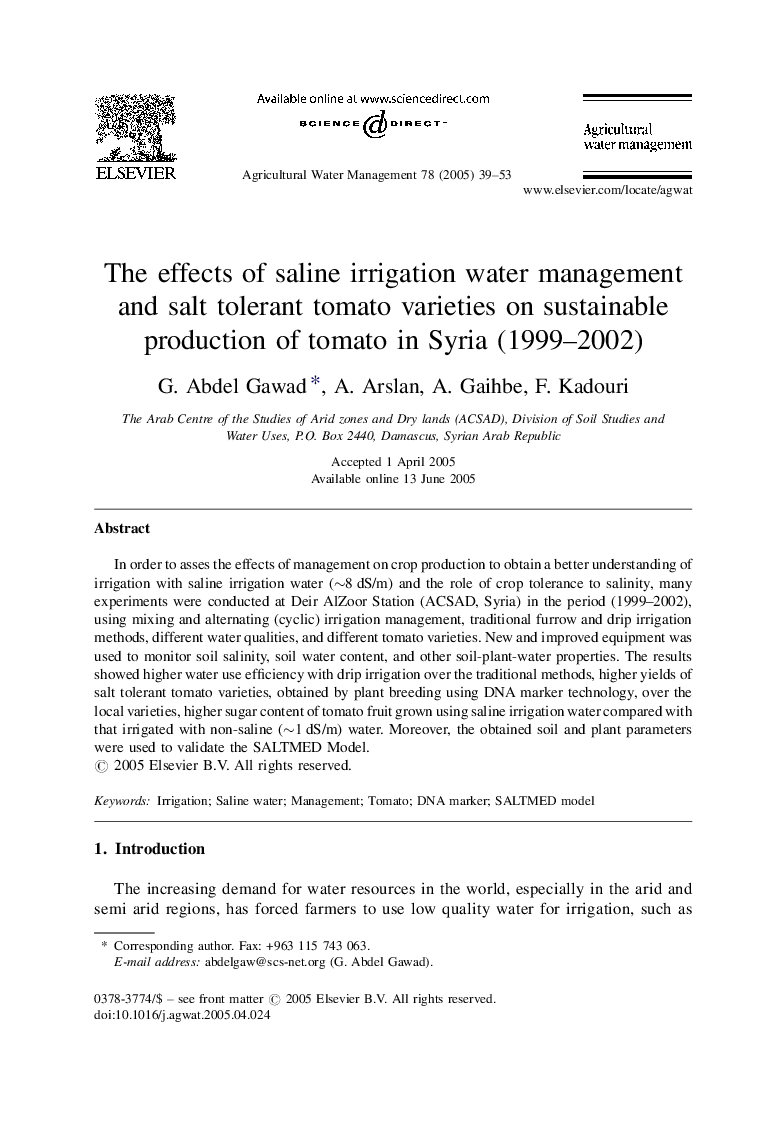| Article ID | Journal | Published Year | Pages | File Type |
|---|---|---|---|---|
| 9467345 | Agricultural Water Management | 2005 | 15 Pages |
Abstract
In order to asses the effects of management on crop production to obtain a better understanding of irrigation with saline irrigation water (â¼8Â dS/m) and the role of crop tolerance to salinity, many experiments were conducted at Deir AlZoor Station (ACSAD, Syria) in the period (1999-2002), using mixing and alternating (cyclic) irrigation management, traditional furrow and drip irrigation methods, different water qualities, and different tomato varieties. New and improved equipment was used to monitor soil salinity, soil water content, and other soil-plant-water properties. The results showed higher water use efficiency with drip irrigation over the traditional methods, higher yields of salt tolerant tomato varieties, obtained by plant breeding using DNA marker technology, over the local varieties, higher sugar content of tomato fruit grown using saline irrigation water compared with that irrigated with non-saline (â¼1Â dS/m) water. Moreover, the obtained soil and plant parameters were used to validate the SALTMED Model.
Related Topics
Life Sciences
Agricultural and Biological Sciences
Agronomy and Crop Science
Authors
G. Abdel Gawad, A. Arslan, A. Gaihbe, F. Kadouri,
